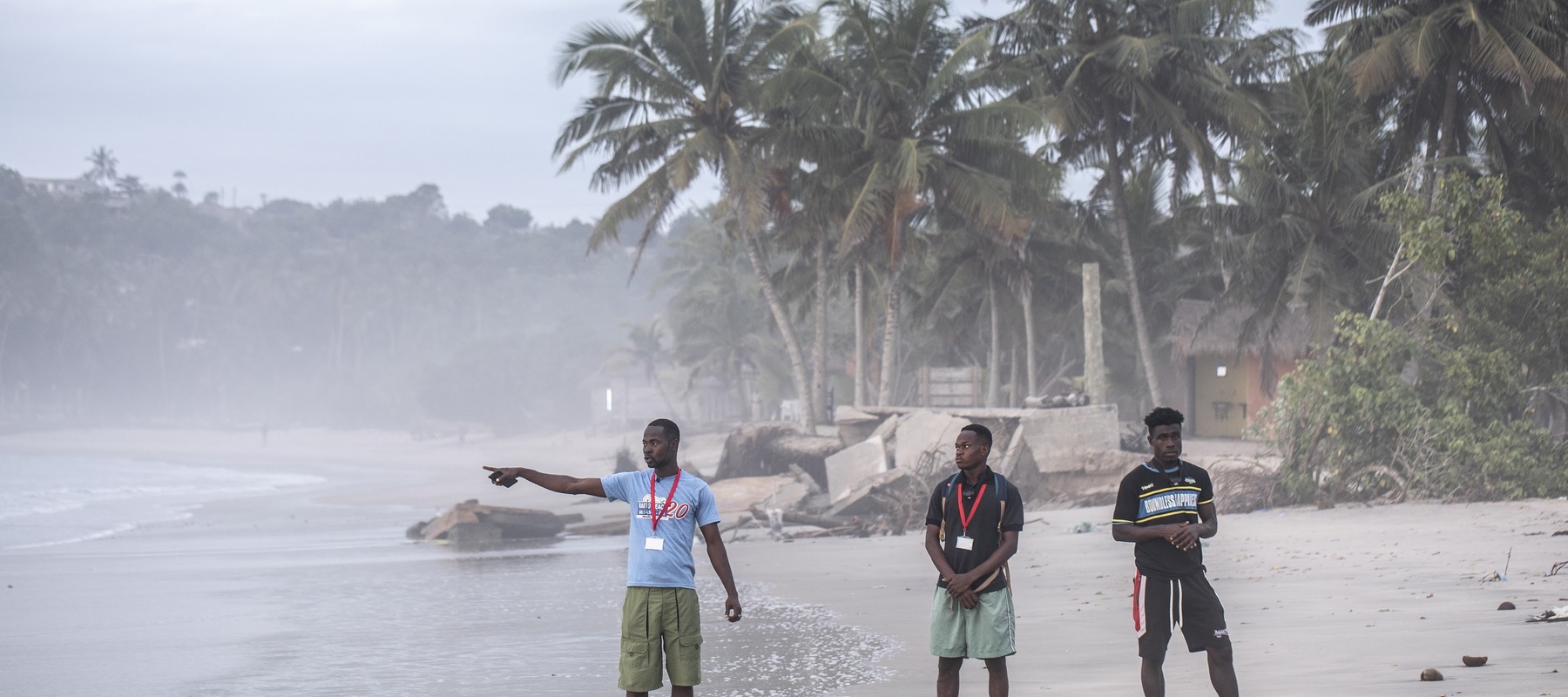The Fetteh Youngsters are no ordinary local football club. Although they look like a normal team by day, at night they are superheroes of the seas, working to safeguard Ghana’s turtles.
Since 2019, EJF has been working to protect nesting sea turtles in Gomoa Fetteh, a fishing community in the Central Region of Ghana. At the heart of the project is a patrol team made up of six members from the club, supported by their coach and EJF’s community mobiliser, Daniel. During the first turtle nesting season, the team recorded 22 nesting turtles and another 26 nests, and successfully deterred poachers, allowing turtles to nest safely.
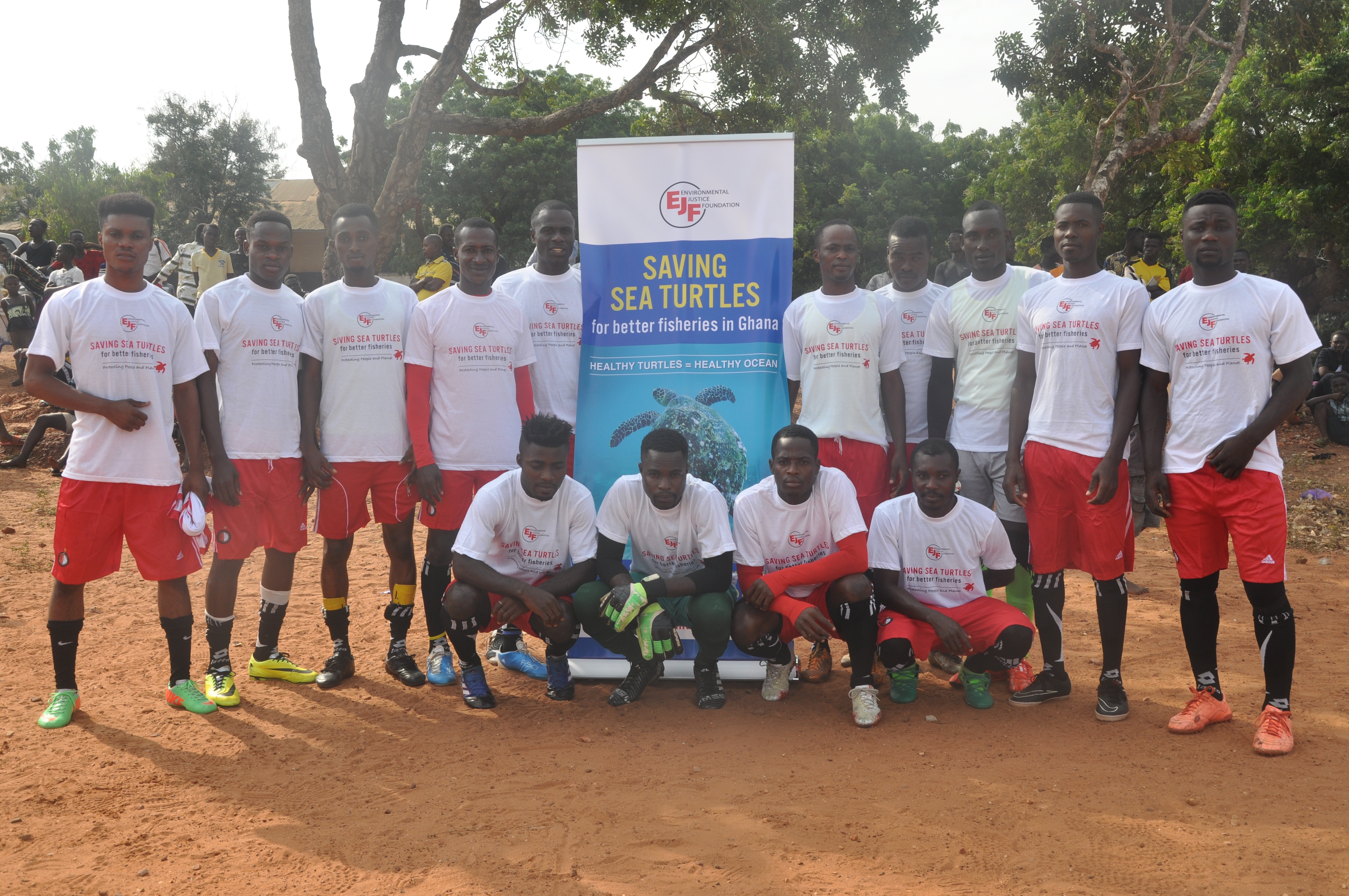
Sea turtles in Ghana
Sea turtles are threatened in Ghana and around the world. Ghana provides vital habitat for at least three species of sea turtle, all of which are in decline globally.
Olive Ridleys, Leatherbacks and Green Turtles are all known to nest routinely along Ghana’s coastline. Leatherbacks are the largest species and undertake the longest migrations between breeding and feeding areas of any sea turtle, averaging an astonishing 3,700 miles each way. Loggerheads and Hawksbills also visit Ghanaian waters.
Sea turtles are vital for maintaining healthy ocean ecosystems and fisheries, grazing on seagrass, maintaining coral reefs and regulating jellyfish, which prey on fish eggs. However, they are particularly vulnerable to declines: they reach breeding age late, and although they lay large numbers of eggs, only 1 in 1000 will survive to adulthood.
All turtle species are protected under Ghanaian law and it is illegal to take them or their eggs. Despite these legal protections, it is common for turtles to be poached while coming ashore to nest. Others become entrapped in fishing nets. Pollution, coastal development and climate collapse also pose serious threats to their survival.
Sea turtles are vital for maintaining healthy ocean ecosystems and fisheries.
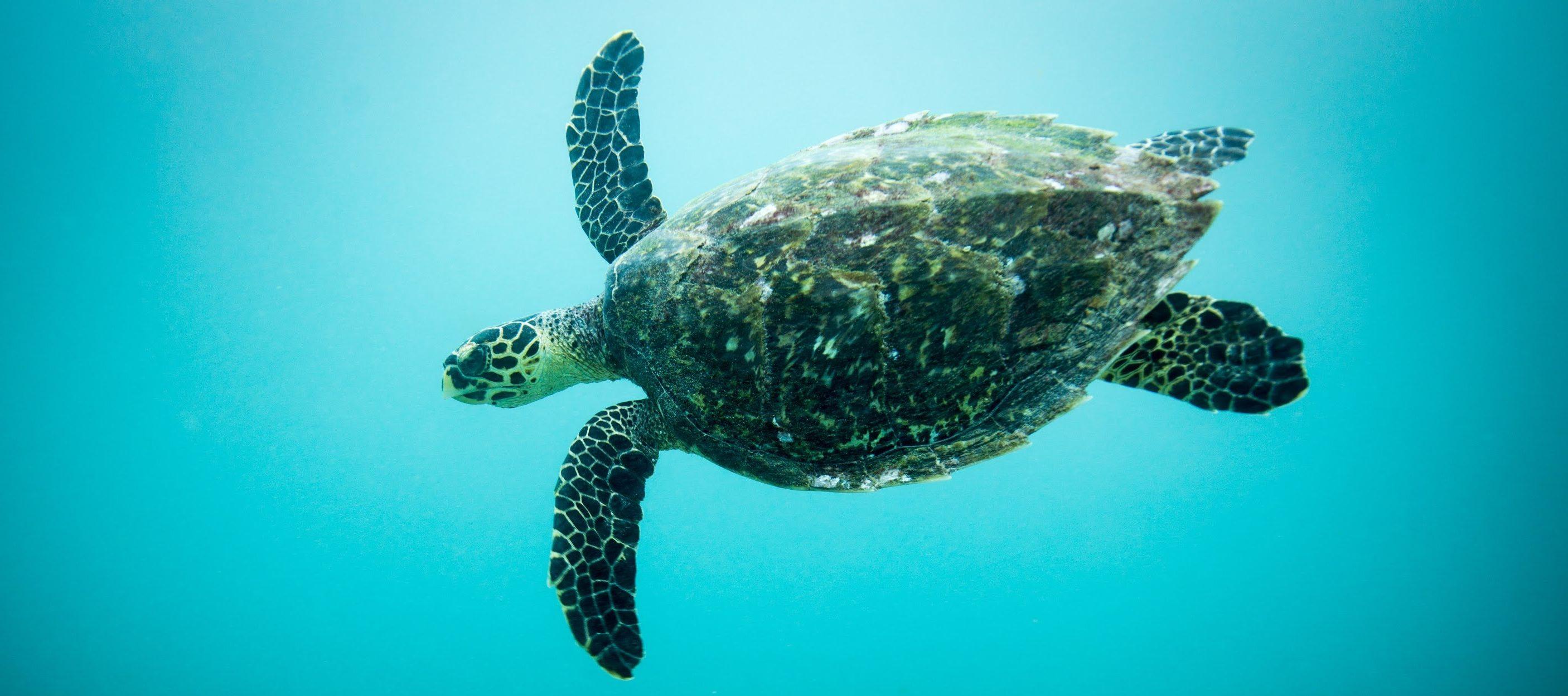
The project
Gomoa Fetteh is a coastal community located around 50 km west of Ghana’s capital, Accra. Along with 200 or so other villages along Ghana’s coast, it is heavily dependent on marine fisheries for food security and income. Over 2.7 million Ghanaians, almost 10% of the population, rely on fisheries as their main source of livelihood. However, due to rampant overfishing and illegal fishing, fish populations have declined dramatically over the past two decades, with some species on the verge of collapse. This has left coastal villages vulnerable to poverty and hardship.
EJF’s turtle project at Gomoa Fetteh officially launched during the community’s annual “Ahobaa Kese” festival in August 2019, a week-long celebration of the ancestors, culture and indigenous peoples of the area. Soon after, the first turtles of the season began to arrive to nest on the community’s beaches. A patrol team was formed, made up of six teammates from the local football club, Fetteh Youngsters, introduced to the project by their coach and EJF community mobiliser, Daniel Botchwey.
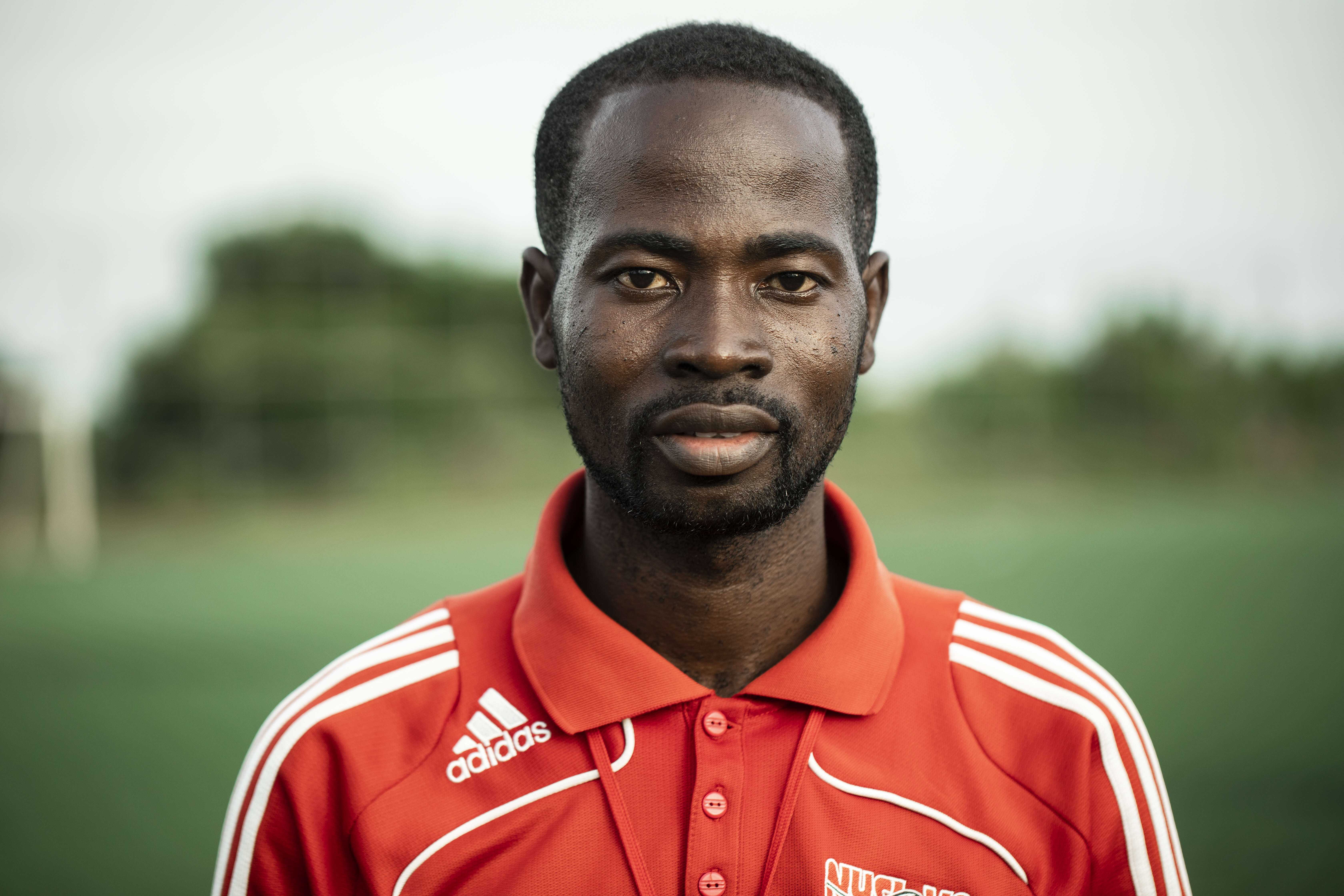
Healthy turtles mean healthy oceans. So my motivation is to stop the poaching and turtle processing in Gomoa Fetteh.
EJF community mobiliser, Daniel Botchwey
Nightly patrols
In teams, the patrollers walked the community’s beaches at night looking out for signs of turtle nesting and, if they were lucky, the chance to see nesting in progress. During the first nesting season, the team saw 22 nesting turtles and recorded another 26 nests. Most nesting took place from October to December, and the first hatchlings were seen in late December.
The team found both Olive Ridleys and Green Turtles nesting on Gomoa Fetteh’s shores, a single Leatherback was seen too, but it had been taken by poachers while attempting to nest. The patrol team were disturbed to find the Leatherback had suffered severe injuries to its flippers, as the poachers dragged the huge creature from beach to village for processing.
Sadly, this was not the only case of turtle poaching during the season. Although the patrol team had some success in deterring poachers, they recorded 47 turtles having been poached, most during the nesting peak in October. This shows how essential the work of the patrols is – every turtle they save is a huge success.
The patrollers walk the community’s beaches at night looking out for signs of turtles nesting.
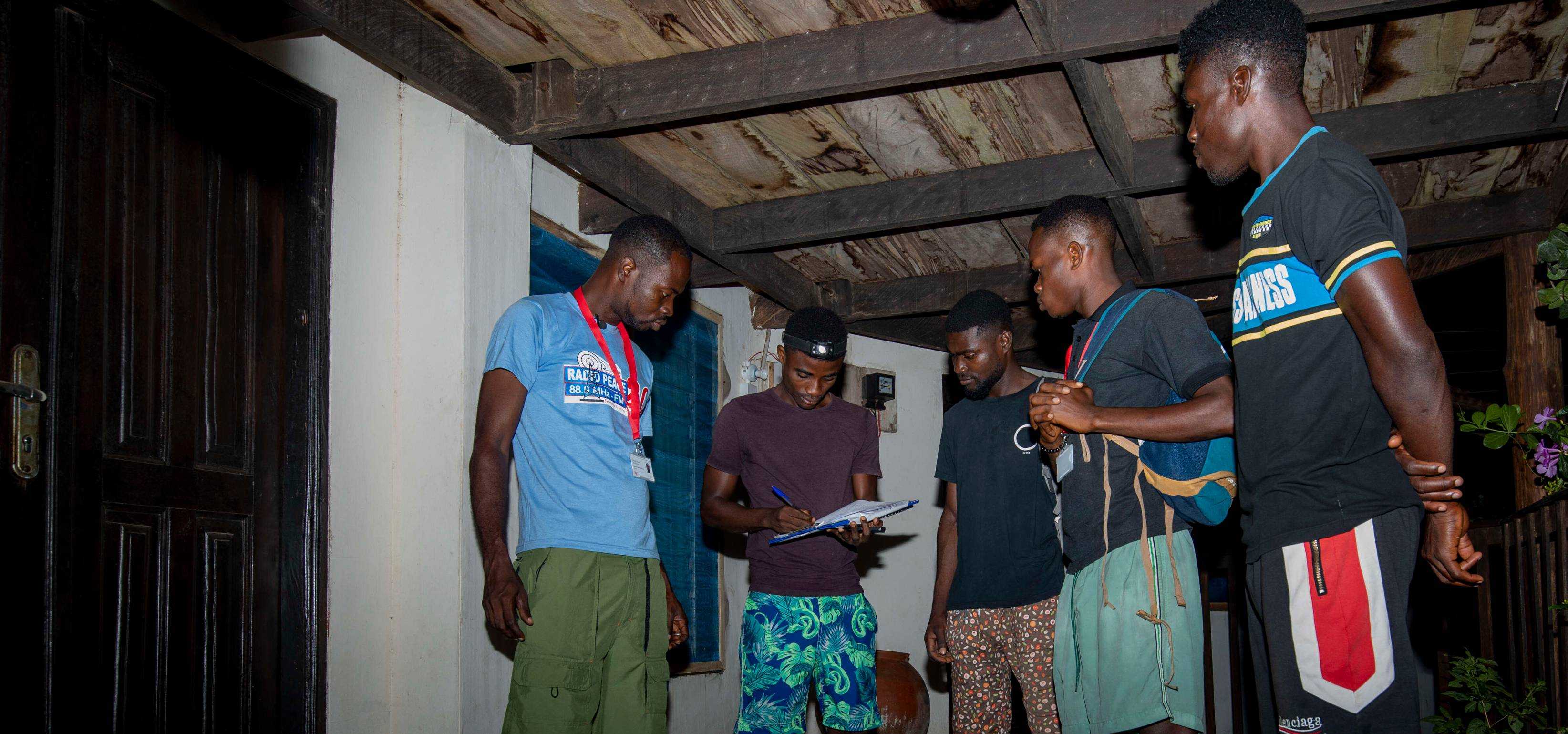
Capture in fishing nets
The team’s work also revealed the scale of the threat to turtles of being caught as bycatch.
More than 125 turtles were captured in fishing nets in 2019. This is more than were recorded as successfully making it ashore to nest, a survey of fishers from 22 different canoes indicated. Olive Ridleys and Leatherbacks were the most common species caught. In one case, four turtles were caught in a single fishing trip by canoe fishers off the coast.
Although caught accidentally, fishers often sell turtles on returning to shore to compensate them for damage caused to their nets. The team plans to work with fishers on how to release turtles safely and provide materials to mend any damage to their nets that may occur.
Tech for turtles
A highlight of the 2019 nesting season was the use of a mobile app to record data on nesting turtles directly to an online interface.
The app, based on the Collect software developed by Atlan, allowed for close cooperation between the patrollers in Fetteh and researchers in the UK. Through the app, the patrollers were able to submit images, audio files and film in real time, which could be easily downloaded for analysis and follow up.
GPS coordinates were also plotted automatically on a map, revealing hotspots of nesting activity. The western beach at Gomoa Fetteh was found to be particularly active for turtle nesting. A number of guesthouses and hotels are dotted along this stretch of beach. In the coming months, the team will strategise with the owners on how to protect nesting turtles, which help bring in much-needed income for the local community through eco-tourism.
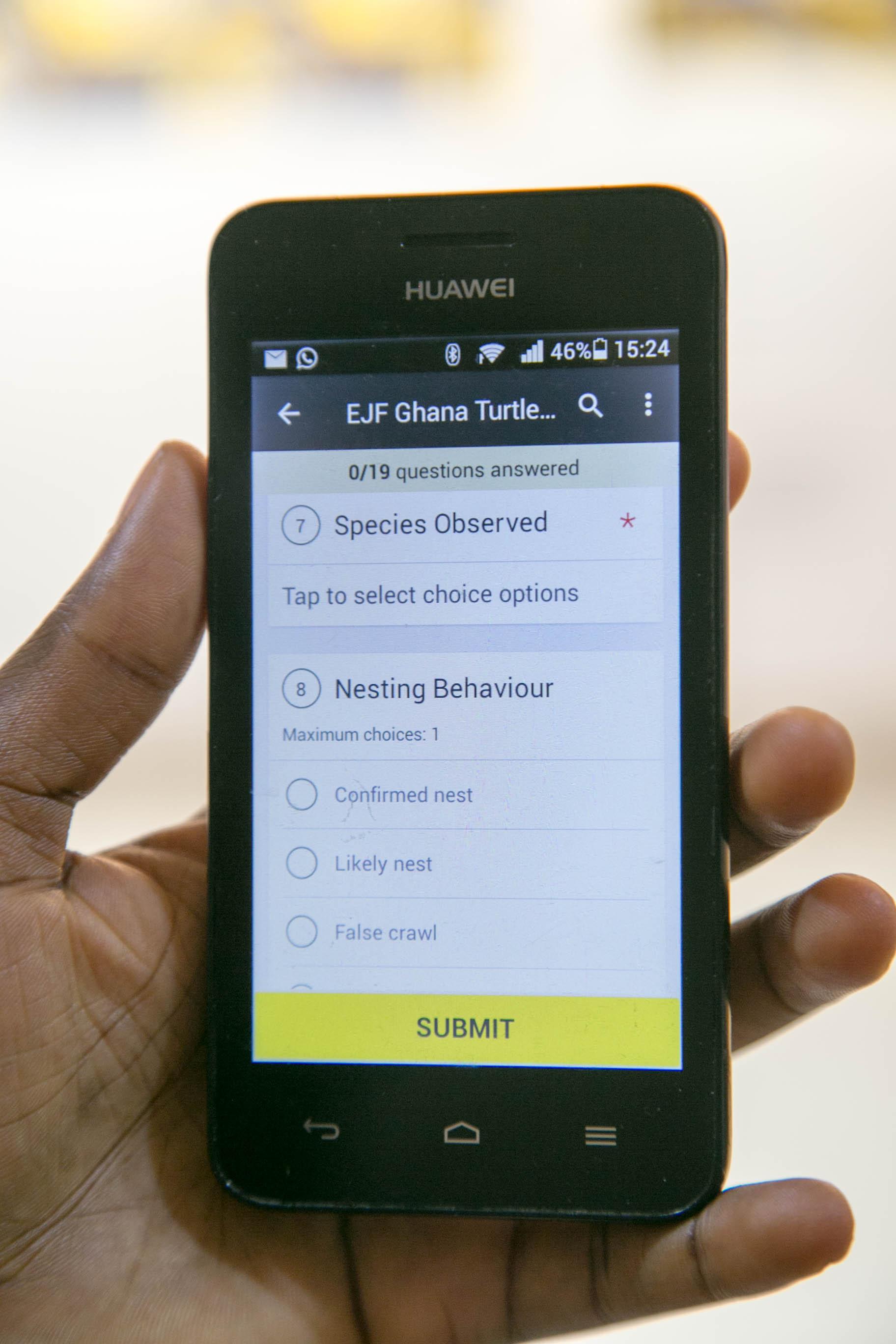
The start of something bigger
Our turtle conservation project at Gomoa Fetteh got off to a promising start during the 2019 nesting season, thanks to the great efforts of the patrol team. The project is still in its infancy but already we have plans to expand our work. The 2020 nesting season is already underway, and while patrollers have reported a decline in poaching by Fetteh residents, the gap has been filled by poachers from neighbouring town Senya Beraku. Coordinated efforts are needed across these communities, encouraging poachers to turn protectors; bringing children into the campaign, and supporting those who process the meat to develop alternative sources of income. The team is eager to make sure we score those goals in 2021.
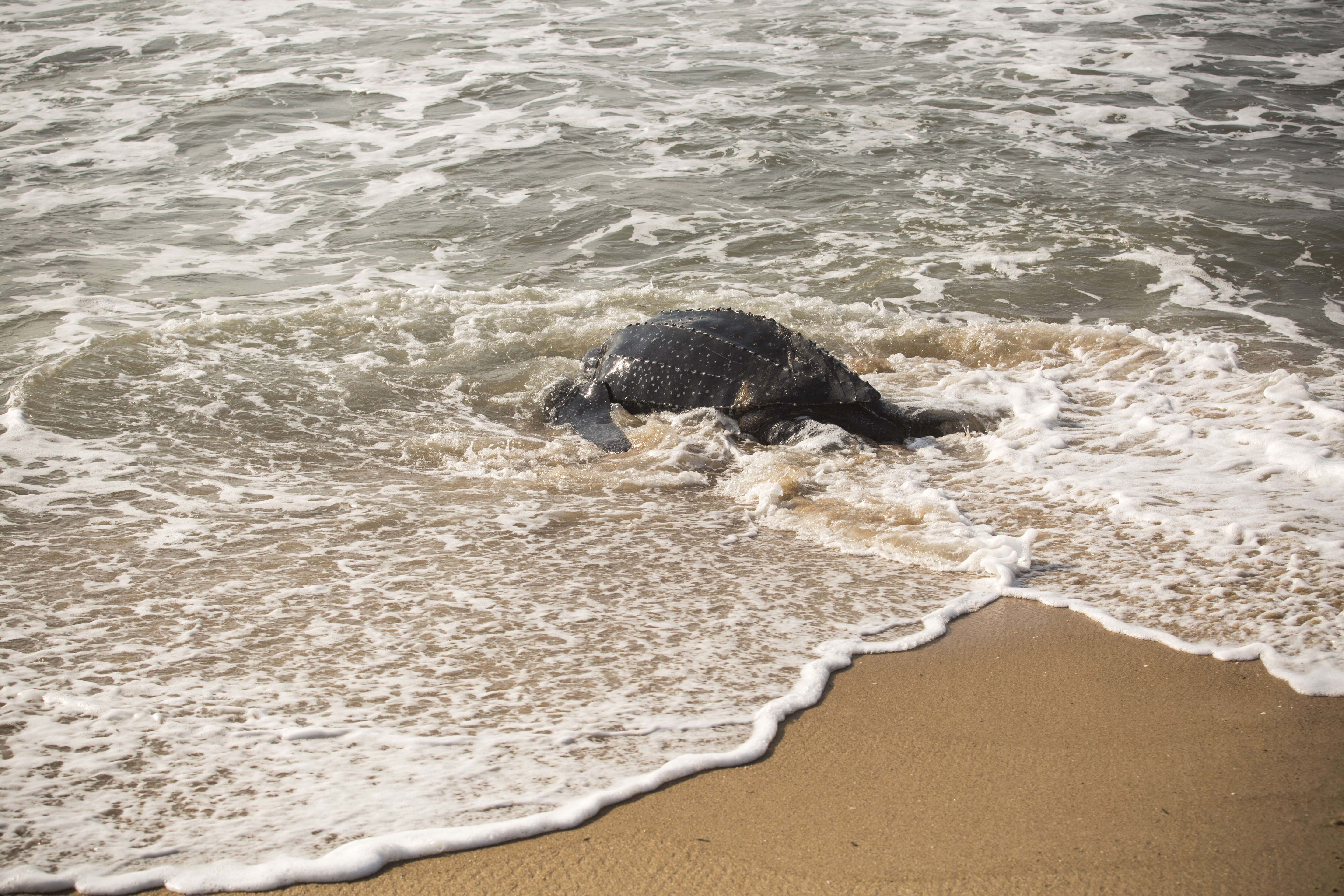
SIGN UP FOR OUR EMAILS AND STAY UP TO DATE WITH EJF
